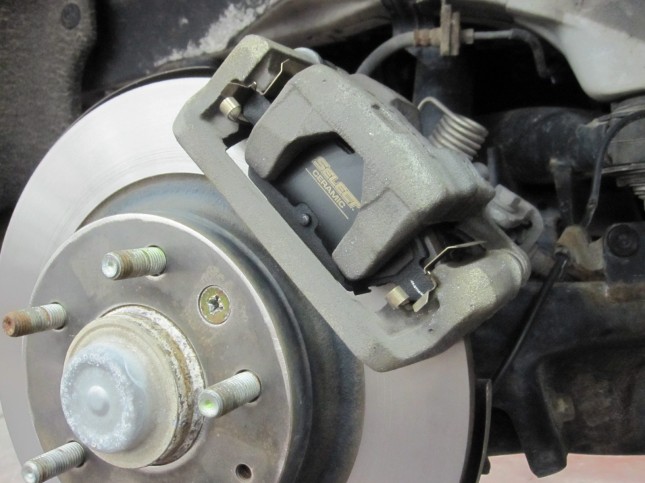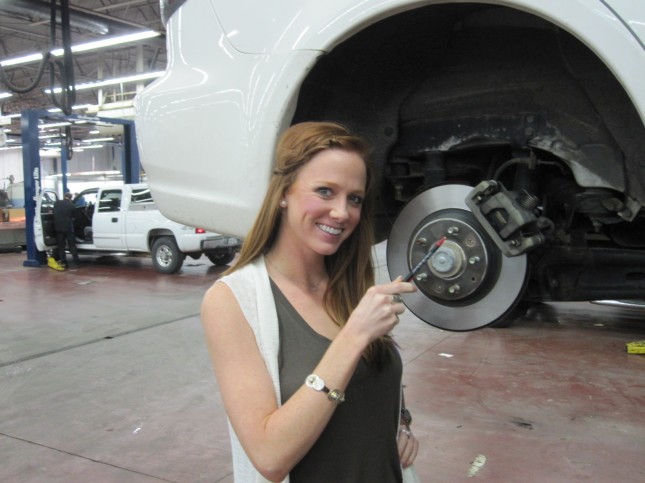I’ve had the fortunate opportunity to drive all sorts of makes and models of vehicles. And I will tell you this: They all drive differently, they all feel different and they all brake differently. It is important to know this! Because when it comes to checking your brakes, each vehicle will vary, as will each driver.
Here’s some answers to common questions I often hear about brakes:
What are soft brakes?
Soft brakes are when you push down on the pedal, it’s a soft & spongy feeling. This feeling may indicate a leak of brake fluid, a bad master cylinder or air in your brake system. If you start to feel a soft brake, you should get it checked out.
What are hard brakes?
Hard brakes are when you push down on the pedal, and it’s very difficult and hard to force. This is a more severe situation because it could indicate a blockage of fluid thru the system and allow the brakes to grab, and you need to get them looked at immediately.
What purpose do brake pads serve?
Brake pads have special wear indicators, which detect when the pads are getting worn down. You will hear a constant “squeak” until the brakes are applied.
Why are my brakes so squeaky when it rains?
After it rains, your brakes may squeak because of rusting. No worries, it should go away with use. And in the morning, your brakes may sound a bit squeaky because moisture may have built up on the pads. If you give it some time, the noise will go away.
So tell me … have you had your brakes repaired in the past? Did a noise or the way they felt prompt you to bring them in for repair?





4 Comments
I’m impressed by how niche your topics get.
My two cents: Many squeals are indeed just dust gathering but having them checked doesn’t hurt either. I believe they should be checked and/or replaced every 20,000kms depending on your pads and driving. Once you check them you’ll get a feel for how much is left before you’ll have to get em replaced.
Like the photos. 🙂
Thank you for adding your “two cents”! Very appreciated!
I couldn’t agree with you more! 🙂
It never hurts to be extra careful.
And thank you!
Also keep in mind… front brakes tend to wear faster than the rear due to the “extra” weight up front from the engine and transmission. On average, fronts were about 2x faster than rears.
The squeaking can be a multi-faceted reason:
– pads worn down to the indicators (sometimes will cause a constant grind)
– CHEAP pads
– malfunction in the brake system always causing them to be “on” the rotor while driving
Also…
– rotors have a finite life
– when pads are replaced the technician should ALWAYS meaure the thickness and compare to manufacturer specs
– make sure they are “condemable” or very close before replacing them (good ones can be expensive)
– if possible, opt to have them turned IF there is enough “meat” left
Lastly…
– remember CHEAP means exactly that. Do you really think spending $100.00 less on the pads is worth the chance of failure with you / your friends & family in the car with you?
Wow… thanks for the great info. I didn’t know about the front brakes wearing faster than the rear. Great information!
I’ve always said “You get what you pay for”. You don’t need to spend a million bucks on things … just make sure they’re quality!
Thanks again Scottie!